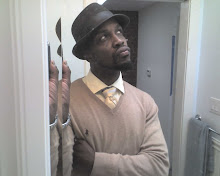Tenant Wins Damages for Abuse
By: ARTHUR S. LEONARD
12/07/2006
Email to a friendPost a CommentPrinter-friendly
A state appeals court in Brooklyn ruled on November 28 that a male landlord had violated the State's Human Rights Law by engaging in "same-sex sexual harassment" of one of his male tenants.
Advertisement
var ss_loc_off_root='';
');
}
//-->
Upholding an award of $10,000 as compensation for mental anguish, the court decided-in a case of first impression, without reference to any clearly established precedent-that the same rules governing workplace sexual harassment should apply to the relationship between a landlord and a tenant.The complaining party, Cheriko A. Boone, leased a ground-floor apartment at 55 Halsey Street in the Bedford-Stuyvesant section of Brooklyn beginning in July 2000, at first sharing it with a female roommate. When Boone renewed the lease the following summer, a male roommate replaced the woman, and it was then that the landlord, Nelson M. Stoute, who lived on the fourth floor, allegedly began to engage in objectionable conduct. Boone claimed that Stoute's conduct became so oppressive that he and his roommate ended up moving out before the lease was up.Boone filed his complaint with the State Division of Human Rights in December 2001, but Stoute never responded, so the administrative judge relied solely on the former tenant's uncontradicted testimony. It was only after the judge recommended damages for Boone that Stoute finally responded, claiming-too late-that the complainant's testimony was inaccurate. The landlord did not dispute that he received multiple notices of the original complaint and the hearing date.Justice Howard Miller's opinion for the four-judge appellate panel does not fully detail Boone's allegations, stating that "in the interest of both brevity and dignity we shall describe them only generally," but even that summary suggests that Stoute was sexually obsessed with his then-tenant. He became a virtual stalker, spying on Boone and taking pictures of him and his guests-whom he would quiz-at all hours, making sexually-charged remarks to him, and letting many others know of his carnal desires. Boone testified that Stoute peered through his bedroom window when he was having sex, and listened at his door to overhear conversations, which he later repeated to others. Boone, for his part, asserted that he made clear to Stoute that he was not interested in having a sexual relationship with him. He testified that he decided to leave before the expiration of his lease because he felt threatened by the situation."I felt like I was in prison," he stated, "like I couldn't have guests. I couldn't do anything without Mr. Stoute monitoring what I was doing. And, you know, I couldn't live like that anymore."Boone testified that he was "a wreck," and he "always felt like I had to look over my shoulder when I was coming home because I didn't know if Mr. Stoute would be there... I just didn't know what he would do next and so I was scared."Two of Boone's friends gave corroborating testimony. He also had filed police reports against Stoute on several occasions, which confirmed his story.When Stoute finally responded in his objection to the State Division of Human Rights administrative judge's order, he claimed Boone was a "flagrant exhibitionist" who engaged in "sexual activities in full view" of people passing by his ground-floor apartment on the street and also let his friends "roam freely" about the building, alarming other tenants. He claimed that as landlord he had a duty to uphold security in the building, and that this explained his conduct.These claims were not considered since they were made too late in the administrative hearing process.The administrative judge's recommendation of $7,500 in damages was increased to $10,000 by the state human rights commissioner and Stoute was ordered to pay within 30 days with interest accruing at nine percent per annum. The commissioner also ordered Stoute to "cease and desist" from sexually harassing tenants. Stoute ignored the damages order, so the Division of Human Rights filed suit to enforce it, which was taken up by the Appellate Division in Brooklyn.Justice Miller, noting that New York State courts have looked to federal precedents under the 1964 Civil Rights Act when interpreting the state Human Rights Law, concluded that it was appropriate to apply U.S. workplace same-sex harassment precedent to this case. Since the state gay rights law had not yet passed when the harassment took place, the issue was whether the landlord's conduct qualified as sex discrimination.Relying on the U.S. Supreme Court's same-sex harassment precedent established by Oncale v. Sundowner Offshore Services in 1998, Miller concluded, "Substantial evidence in the record, consisting largely of Boone's unrebutted testimony at the hearing, demonstrates that Stoute engaged in a continuous course of unwelcome, sexually-offensive behavior, directed at Boone, which altered the terms of his rental." The judge found that the $10,000 damages award was "reasonably related to the wrongdoing" and comparable to damages that had been awarded in cases involving race-based housing discrimination.The court's decision was unanimous, so the possibility of Stoute getting the state Court of Appeals to review the case appears slim.The State Division's case was presented to the Appellate Division by Michael Swirsky, an out gay attorney in the Division's enforcement division who has participated in many of the important gay and AIDS-related cases taken to the courts in
Immediate Code Erfahrungen: Effizientes Programmieren leicht gemacht
-
Immediate Code: Eine revolutionäre Plattform für den Kryptohandel 1.
Einleitung Der Kryptomarkt boomt und immer mehr Menschen möchten von den
Chancen profi...
2 years ago


No comments:
Post a Comment